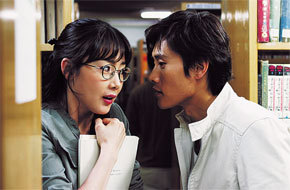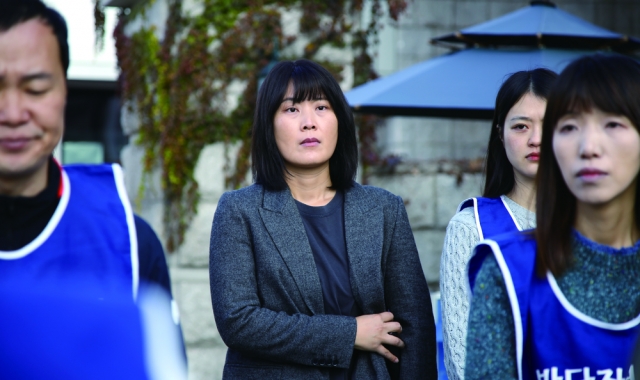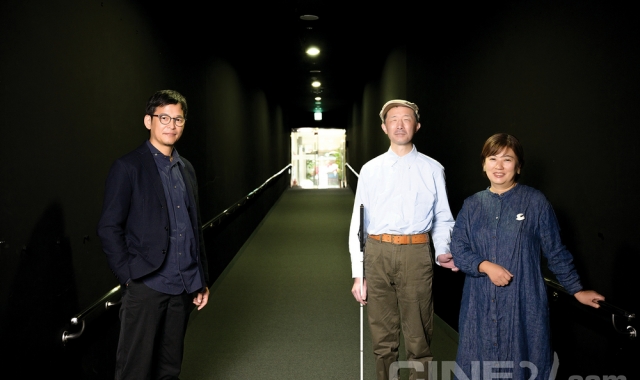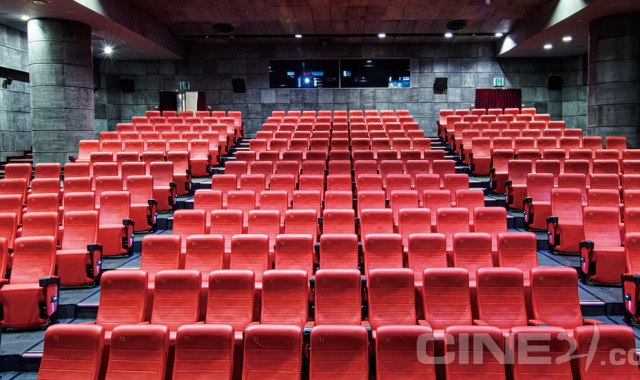
리메이크란 언제 리메이크가 되는 것이며, 그게 상관이 있긴 있는 것인가? 장현수 감독의 <누구나 비밀은 있다>는 솜씨 좋고 위트있으면서 캐스팅이 잘된 로맨틱코미디다. 훌륭한 영화는 아니지만, 즐길 만한 것이고- 서양인의 눈에는- 이전의 산만한 <라이방>에 비해 굉장한 발전을 보인 것이다. 또한 한국인 감독이 서양영화를 공식적으로 리메이크한 첫 번째 영화이기도 하다.
그런데 그게 무슨 상관인지? 오리지널인 2000년 <어바웃 아담>은 영국·아일랜드 합작물로 제라드 스템브리지가 시나리오와 감독을 맡았는데, 이는 근본적으로 1968년 이탈리아영화 <테오레마>(Theorem)를 크레딧 없이 리메이크한 것이다. 이 영화는 동성연애 마르크주의 시인이었다가 감독이 된 피에르 파올로 파졸리니가 연출하고 당시 우상 수준이었던 영국 배우 테렌스 스템프가 이병헌의 역할을 한 것이었다. 파졸리니 감독의 영화는 60년대 영화의 새로운 성적 자유를 표방하며 스템프의 젊고 독수리 같은 미모에 보내는 사랑의 편지인 동시에 부패한 이탈리아 부르주아들에게 보내는 증오의 편지이기도 했다. 스템브리지 감독의 영화는 완전히 이성애적이며, 정치와는 무관한 코미디로 최근 스스로를 고안한 한 도시(더블린)를 배경으로 사회적 지위에 대한 열망에 초점을 맞춘 것이었다. 장 감독의 영화는 한국 로맨틱코미디의 성적 경계선을 확장하려는 동시에 중상류층의 도시화된 한국인들의 현대적 열망을 반영하고 있다.
뭔가 과장되고 비현실적인 방식으로 이 세편의 영화 모두는 ‘알맞은’ 듯한 느낌이 든다. <누구나… >에서 김영찬 작가와 김희재 작가는 <어바웃 아담>에 가까운 시나리오를 유지하며 한국적 개성과 행동주의적 매너리즘으로 조금 손을 봤다. 오늘날 ‘세계 마을’이라느니 ‘다중 문화주의’라느니 등의 얘기를 많이 하지만, 관객은 아직 영화가 알맞다는 느낌이 있는지에 대해서 예민한 편이다. 공식적인 리메이크냐 아니냐는 주로 영화평론가나 저작권법 변호사들의 관심사다.
관객들은 상관하지 않는다. 그리고 어차피 오리지널을 먼저 봤을 가능성도 적다. <황야의 7인>이나 <황야의 무법자>를 보러 몰려든 대부분의 서양인은 구로사와 아키라 감독의 나 <요짐보>를 본 적이 없는 사람들이다. 그들은 그 지역에서 잘 알려진 스타가 있고, 익숙한 장르를 창의적으로 다룬 영화들이었기에 보러갔다. 그리고 할리우드 리메이크를 보러 뛰어가기 전에 일본판 <링>을 먼저 본 미국인은 몇이나 될까? <어바웃 아담>을 본 한국인들의 수와 비슷할 것이다.
최고의 리메이크들은 ‘공식적’이든 아니든 간에 영화의 배경이 된 문화와 시대에 충실했던 것들이다. 발리우드는 정기적으로 할리우드 줄거리들을 재료로 삼아 인도의 지방 관객을 위한 스타 주연의 뮤지컬 판타지로 짓이겨 영화를 만들곤 한다. 홍콩은 원래 자국의 장르가 아닌 것(첩보물, 조폭영화, 일본 칼싸움영화 등)을 중국화한 버전으로, 무엇보다 광둥 사람들에게 알맞은 것으로 만들어 오랫동안 번성해왔다.
계획되고 있는 할리우드의 수많은 한국영화 리메이크는- 결국 나타나긴 한다면- 알맞은 느낌이 들까? 미국인들이 만들고 유명 스타를 출연시킨다면, 아마도 그럴 것이다. 그러나 수많은 신문 표제들이 나왔음에도 리메이크가 결코 이루어지지 않는다면, 좋은 이유가 있어서 그럴 것이다. 그저 ‘알맞은’ 느낌이 들지 않아서일 것이다.
When is a remake a remake, and does it even matter?
Jang Hyeon-su's "Everybody Has Secrets" is a smart, witty and well-cast romantic comedy. It's not a great film, but it's an enjoyable one, and - to western eyes - a major improvement on his rambling comedy "Ray-Ban." It's also the first official remake of a western film by a Korean director.
But so what? The original 2000 film, "About Adam," an Anglo-Irish production written and directed by Gerard Stembridge, was essentially an uncredited remake of a 1968 Italian film, "Theorem," directed by homosexual Marxist poet-turned-filmmaker Pier Paolo Pasolini and starring the then-iconic British actor Terence Stamp in the Lee Byeong-heon role.
Pasolini's film, which exploited the new sexual freedoms of '60s cinema, was both a love letter to Stamp's youthful, acquiline beauty and a hate letter to the corrupt Italian bourgeoisie. Stembridge's film was a thoroughly heterosexual, apolitical comedy tailored to the social aspirations of a city (Dublin) that had recently reinvented itself. Jang's movie attempts to expand the sexual borders of the Korean romantic-comedy genre while reflecting the contemporary aspirations of upper-middle-class, urbanised Koreans.
In a heightened, irreal way, all three films feel "right." In "Secrets," writers Kim Yeong-chan and Kim Heui-jae stay close to "Adam" but tweak the script with Korean characteristics and behavioural mannerisms. Despite all the talk of today's "global village" and "multi-culturalism," audiences still have deeply implanted sensors about whether a film feels right. Whether it's an official remake or not is largely the concern of film critics and copyright lawyers.
Audiences simply don't care, and are unlikely to have seen the original film anyway. Most westerners who flocked to see "The Magnificent Seven" or "Fistful of Dollars" had never even seen Akira Kurosawa's "Seven Samurai" or "Yojimbo"; they went because the movies had local stars and were original spins on a familiar genre. And how many Americans had seen the Japanese "Ring" before running to the Hollywood remake? About as many as the number of Koreans who've seen "About Adam."
The best remakes, whether "official" or not, have been true to the cultures and times in which they're set. Bollywood regularly plunders Hollywood storylines for raw material and mashes them down into star-led musical fantasies aimed at rural Indian audiences. Hong Kong has long flourished on Sino-cised versions of non-native genres (spy films, gangster movies, Japanese chambara films) that feel right, first and foremost, for Cantonese audiences.
Will the many planned Hollywood remakes of Korean films - if they ever appear - feel right? If made by Americans and with big-name stars, probably. But if, after all the newspaper headlines, the remakes never happen, there will be a good reason why: they just didn't feel "right."






